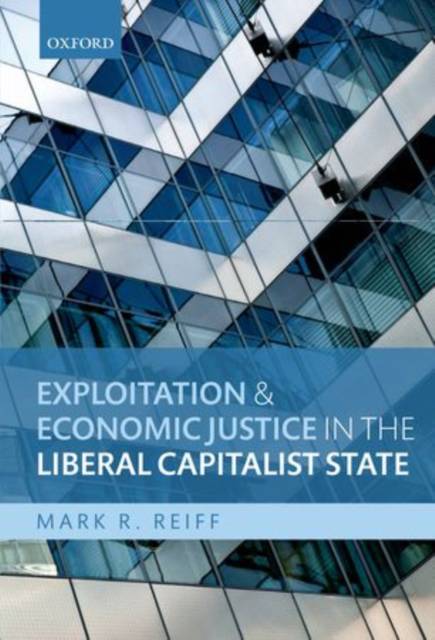
- Retrait gratuit dans votre magasin Club
- 7.000.000 titres dans notre catalogue
- Payer en toute sécurité
- Toujours un magasin près de chez vous
- Retrait gratuit dans votre magasin Club
- 7.000.000 titres dans notre catalogue
- Payer en toute sécurité
- Toujours un magasin près de chez vous
Exploitation and Economic Justice in the Liberal Capitalist State
Mark R Reiff
Livre relié | Anglais
191,45 €
+ 382 points
Description
Exploitation and Economic Justice in the Liberal Capitalist State develops the first new, liberal theory of economic justice to appear since John Rawls and Ronald Dworkin proposed their respective theories back in the 1970s and early 1980s. It does this by presenting a new, liberal egalitarian, non-Marxist theory of exploitation that is designed to be a creature of capitalism, not a critique of it. Indeed, the book shows how we can regulate economic inequality using the presuppositions of capitalism and political liberalism that we already accept. In doing this, the book uses two concepts or tools: a re-conceived notion of the ancient doctrine of the just price, and the author's own concept of intolerable unfairness. The resulting theory can then function as either a supplement to or a replacement for the difference principle and luck egalitarianism, the two most popular liberal egalitarian theories of economic justice of today. It provides a new, highly-topical, specific
moral justification not only for raising the minimum wage, but also for imposing a maximum wage, for continuing to impose an estate tax on the wealthiest members of society, and for prohibiting certain kinds of speculative trading, including trading in derivatives such as the now infamous credit default swap and other related exotic financial instruments. Finally, it provides a new specific moral justification for dealing with certain aspects of climate change now regardless of what other nations do. Yet it is still designed to be the object of an overlapping consensus -- that is, it is designed to be acceptable to those who embrace a wide range of comprehensive moral and political doctrines, not only liberal egalitarianism, but right and left libertarianism too.
moral justification not only for raising the minimum wage, but also for imposing a maximum wage, for continuing to impose an estate tax on the wealthiest members of society, and for prohibiting certain kinds of speculative trading, including trading in derivatives such as the now infamous credit default swap and other related exotic financial instruments. Finally, it provides a new specific moral justification for dealing with certain aspects of climate change now regardless of what other nations do. Yet it is still designed to be the object of an overlapping consensus -- that is, it is designed to be acceptable to those who embrace a wide range of comprehensive moral and political doctrines, not only liberal egalitarianism, but right and left libertarianism too.
Spécifications
Parties prenantes
- Auteur(s) :
- Editeur:
Contenu
- Nombre de pages :
- 372
- Langue:
- Anglais
Caractéristiques
- EAN:
- 9780199664009
- Date de parution :
- 05-05-13
- Format:
- Livre relié
- Format numérique:
- Genaaid
- Dimensions :
- 236 mm x 155 mm
- Poids :
- 703 g







